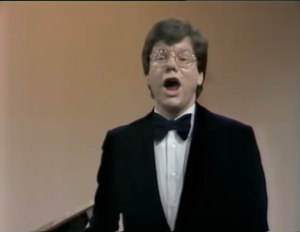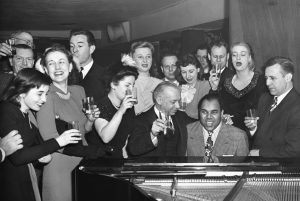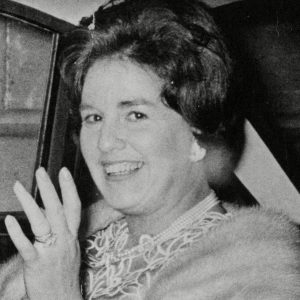Podcast: Play in new window | Download (Duration: 1:31:50 — 103.9MB) | Embed
Subscribe: Spotify | TuneIn | RSS | More
Ian Partridge, the quintessential English lyric tenor, celebrated his 85th birthday in June. I may be a few weeks late in celebrating that event, but my enthusiasm and admiration for this singer has remained at a consistent level ever since I first discovered his voice on a recording of songs by Ralph Vaughan Williams. Partridge, in fact, has left a vast recorded legacy, including work as both a solo concert artist and recitalist and as a member of such distinguished choral groups as Pro Cantione Antiqua, the Wilbye Consort, and the Louis Halsey Singers. His solo repertoire ranged from 11th century plainsong to the thornier musical 20th century idioms of Schoenberg and Britten. This episode samples the vast array of that recorded legacy, including examples from the Baroque period by Bach, Schütz, Handel, and Monteverdi; through art songs by Schubert, Brahms, Fauré, Bax, Gurney, and Warlock. We also hear him live from Covent Garden in his sole operatic role, the Carthaginian poet Iopas in Berlioz’s Les Troyens, and in lute songs and consort music by Campion and Byrd. In all these performances the voice is produced with such ease, the tone so pure and ethereally beautiful, yet never faked or “finessed,” while the interpretations themselves, no matter the musical style, are full of depth, integrity, and subtlety. Here is an enormously satisfying artist who embodies integrity and dedication to his craft. Guest stars include Jill Gomez, Nigel Rogers, Pierre Boulez, Benjamin Britten, Colin Davis, Ernest Ansermet, Norman Walker, Prunella Scales, and the tenor’s sister, pianist Jennifer Partridge, with whom he gave over 400 song recitals.
Countermelody is a podcast devoted to the glory and the power of the human voice raised in song. Singer and vocal aficionado Daniel Gundlach explores great singers of the past and present focusing in particular on those who are less well-remembered today than they should be. Daniel’s lifetime in music as a professional countertenor, pianist, vocal coach, voice teacher, and journalist yields an exciting array of anecdotes, impressions, and “inside stories.” At Countermelody’s core is the celebration of great singers of all stripes, their instruments, and the connection they make to the words they sing. By clicking on the following link (https://linktr.ee/CountermelodyPodcast) you can find the dedicated Countermelody website which contains additional content including artist photos and episode setlists. The link will also take you to Countermelody’s Patreon page, where you can pledge your monthly support at whatever level you can afford. Bonus episodes available exclusively to Patreon supporters are currently available and further bonus content including interviews and livestreams is planned for the upcoming season.




